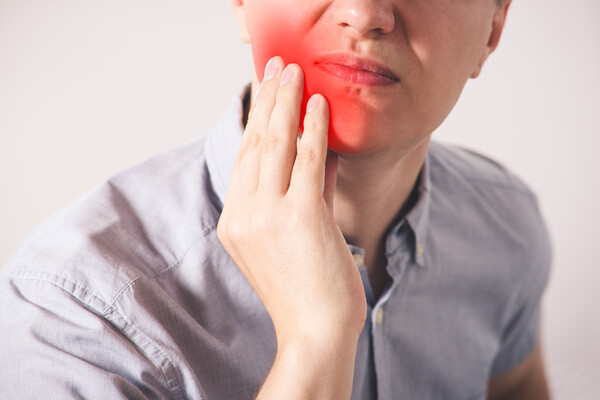A large-scale study by Korean researchers has revealed that oral diseases -- ranging from gingivitis, an early stage of gum disease, to tooth loss -- can increase not only the risk of developing cancer but also the risk of dying from it.

Seoul National University Hospital announced Wednesday that a team of researchers, led by Professor Kim Kyae-hyung of the hospital's Center for Public Health and Dr. Lee Seung-yeon of SMG-SNU Boramae Medical Center's Public Health Department, has analyzed health data of more than 3.84 million adults in Korea, identifying various oral diseases and quantitatively analyzing their relationship with cancer incidence and death.
The researchers studied 385,280 adults who underwent an oral examination in 2009 and followed them for more than 10 years by linking their National Health Insurance Service medical records from 2006 to 2019 with death data from Statistics Korea.
The researchers analyzed the incidence of all cancers, site-specific cancers, and cancer mortality according to the presence or absence of three types of oral diseases: tooth decay, gingivitis, and tooth loss.

The results showed that 181,754 cancers occurred, with more cancers occurring in those with oral diseases than in those without. In particular, colon cancer was 13 percent higher, liver cancer was 9 percent higher, stomach cancer was 8 percent higher, and lung cancer was 4 percent higher in those with tooth loss. The presence of gingivitis also increased the risk of liver and colon cancer by 8 percent and 7 percent, respectively.
Significant differences were also found in cancer deaths. There were 37,135 cancer deaths over the 10 years, and having oral disease was associated with a 12 percent higher risk of overall cancer death. Those with tooth loss had a 24 percent increased risk of prostate cancer, 21 percent increased risk of stomach cancer, 16 percent increased risk of liver cancer, 14 percent increased risk of colon cancer, and 8 percent increased risk of lung cancer. Gingivitis was also analyzed to increase liver cancer mortality by 11 percent.
The researchers found that these effects were particularly pronounced in older adults, especially those aged 50 and older. Tooth loss was found to increase the overall risk of cancer by 18 percent in those 50 and older, and higher rates were seen for all primary digestive system cancers, including stomach, colon, and liver cancer.
The risk of cancer associated with tooth loss was also greater in higher-income groups. Those who had ever smoked had an increased risk of stomach, colon, and liver cancers, which was observed even among those who had never smoked. This suggests that oral disease may act as an independent risk factor for cancer development in addition to simple lifestyle factors, the researchers interpreted.
“Oral diseases not only affect dental health, but also trigger a systemic inflammatory response through chronic inflammation, and this process may be involved in the development and progression of cancer,” Professor Kim said. “Regular oral examinations, hygiene management, and dental treatment may be a new strategy for cancer prevention.”

